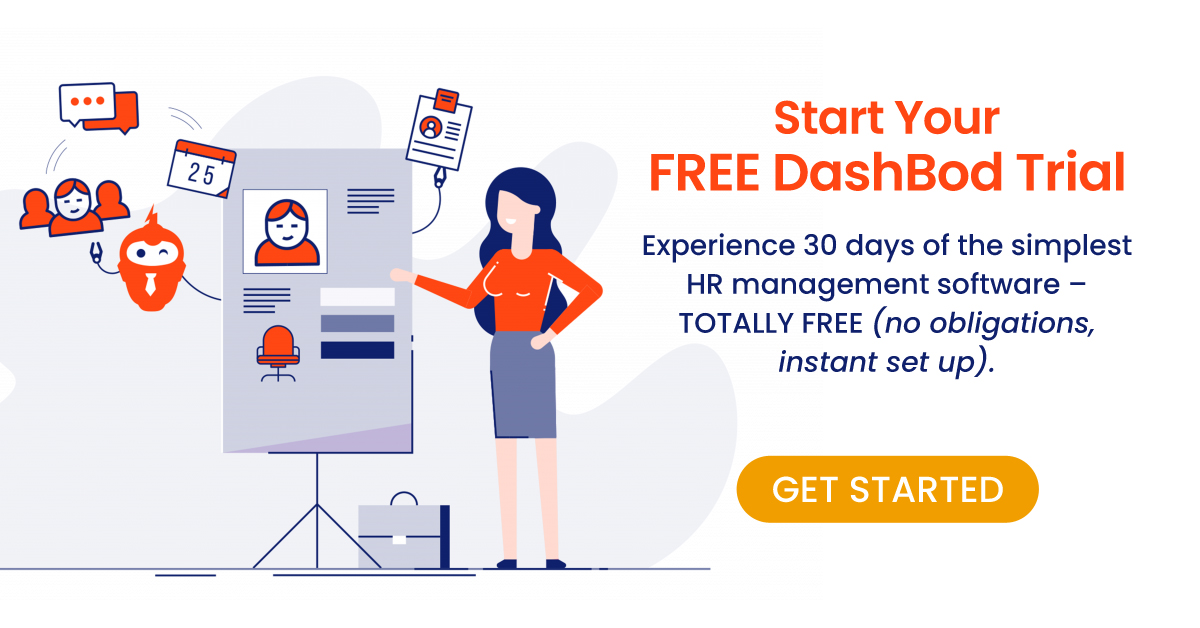In a small business, HR issues are, perhaps, one of the toughest challenges you will experience. While juggling the many aspects of growing the company, you’re also subject to the same regulations and people-problems as the much larger players in your industry.
You know there are HR solutions available to support your small business. But the fact is, you don’t have the budget. You’re not alone.
Most small businesses don’t have a designated HR department and the job is entrusted to either the owner or executive.
However, that doesn’t mean you can put HR on the backburner. Failing to handle them could signal an end in the business. As such, it’s important to recognise these problems and learn how to avoid them.
The Need for HR Strategies in Small Businesses
While there’s a myriad of reasons why a business might fail, here’s something noteworthy. Businesses fail 23 percent of the time because they don’t have the right people in their team.
This means recruitment practices, onboarding, training, performance reviews and the whole chain need to be solid. This is how you retain your top performers and sieve out underperformers.
If payroll is all you’re doing currently for HR activities, it might be time to get serious about developing an HR strategy for your small business.
Key responsibilities of HR for small businesses
Implementing HR solutions for small businesses doesn’t have to be a drag on the company. Think of it instead of creating an environment for your company to operate more efficiently and more effectively.
HR is here to provide structure to the company, to help you negate risk and give your team a boost. Remember, your people are the most important resource. You very well know how much they can power the company forward and destroy it.
Here are three key objectives you should strive for:
- Keep people safe: Ensuring the workplace is designed to improve mood, employees are not physically in danger (such as toxic chemicals or fire hazards)
- Provide pay and benefits: Pay your employees on time and accurately, offer benefits such as health/dental insurance, paid time off, incentives etc. You may want to use the employee self-service module in your HR system to ensure they have access
- Stay compliant with the law: Make sure you understand the latest MOM policies (medical leave, parental leave, foreign employment requirements) and help employees understand their rights
You might be interested in: Top 7 key features every HRM system must have (for Singapore SMEs)
Common HR Challenges and Mistakes in Small Businesses
Establishing company policies and processes
“Too small to matter” mindset: Without processes, there’s confusion. When there are no specifically outlined policies, there’s conflict. And when issues arise, there isn’t a habit to solve it fast, leading to compliance mistakes.
Hiring employees
Now let’s talk about something that you’re always thinking about, but hardly doing – hiring employees.
Wasting resources going through trial and error: You are likely to have great ideas on the best people for the job. But without an HR specialist or a process to segment applicants, it can be tricky and time-consuming to match the right person with the right job.
Poor onboarding: Many small businesses often hire people in their personal network, which leads to a rather informal hiring process and minimal onboarding, if any at all. However, as you grow and bring on new talent, this can look very unprofessional.
Additionally, employees might also waste too much time trying to figure things out on their own during their first few days, weeks, even months.
Continuous education and training
When you hire under pressure or if you’re like most, running low on resources, it’s easy to forego employee training. They will learn on the job right?
Thinking too short-term: While it takes time and resources to train employees, failure to do so may be even more expensive. IBM’s study found that employees are 12 times more likely to quit a job if they aren’t getting the development they need.
Considering that the total cost of recruitment can be up to 30% of the position’s salary. this is not a cost to be taken lightly.
Documenting employee performance
In busy times, documentation often gets kicked to the curb and forgotten.
Employees want to know where they stand: On a management level, it might seem sufficient as long as employees are getting the job done. However, on the ground, employees want to know what they are doing well and where they need improvement. Having performance reviews also improves their effectiveness and the need to fire underperforming employees in the future.
Get employees excited: Traditionally, reviews have always been about holding employees accountable for past company performance. But modern reviews are forward-looking. Use reviews to set goals and get team members excited about their work having a long-lasting impact on your company’s success.
Keeping rewards transparent: Compensation and promotions can be a tricky situation. Employees want them, but they also want to know exactly why a certain employee received something more. Implementing incentives into performance reviews makes the process a lot easier for HR, not just in small businesses, but of any size.
Ready to give your small business a headstart with HR software? Try us for free today.
Collecting feedback
One of the key roles of HR, from the employee’s point of view, is to provide an outlet to express dissatisfaction, opinions and requests. HR can be seen in a way as the linkage between staff and management.
Employees need to be part of building the company: Employees need to feel that their feedback is heard and considered. It might be quarterly one-on-one discussions, online portals or company-wide meetings. So, show employees you value their feedback, both positive and negative, and actually implement them to improve the company.
Employee retention
Leaving because of lifestyle: One of many HR challenges that small businesses face is that their employees have very poor work-life balance. So it’s common to see employees joining, developing a new skill, then when the company’s activities ramp up, they use those skills to get new positions at another organisation that offers better work-life balance.
HR Solutions for Small Businesses
Establishing company policies and procedures
- A simple booklet that spells out how employees to should behave, what their expectations are and the objectives of the company is sufficient
- Sit down with key employees to discuss what should be included. Since they are in contact with other employees and are involved in most of the processes, they will bring the most valuable insights. Besides, giving employees a say in this is the first step to getting them involved and attached to the company.
Hiring employees
- Include a project as part of the recruitment process. This way, you’ll be able to see them in working alongside others, while rating their skills
- Implement a structured onboarding process to ensure your new employees ease right into the job and get work as soon as possible
Continuous education
- Establish an in-house mentoring programme
- Implement cross-functional training
- Encourage seminars and workshops
Documenting employee performance
- HR software for your small business can help you track key performance metrics
- Sync that with your employee records to ensure you have all the data you need for compliance purposes
Collecting feedback
- Determine what kind of feedback matters to your organisation and employ a variety of tools to collect it, eg. Google Forms, scheduling monthly meetings etc
Employee Retention
- Training can help you retain your best talent
- Offer more meaningful responsibilities so they feel connected to a larger purpose
- Incentives don’t have to be money, eg. giving more time off, health benefits, etc
The world of HR is changing. It’s not just updated rules and regulations, but also about maximising the potential of your people and their output. You can’t exist without them and they need you to develop them too.
As a small business, it’s important to recognise problems early so you can avoid them in the future.
Ready to give your small business a headstart with HR software? Try us for free today.



